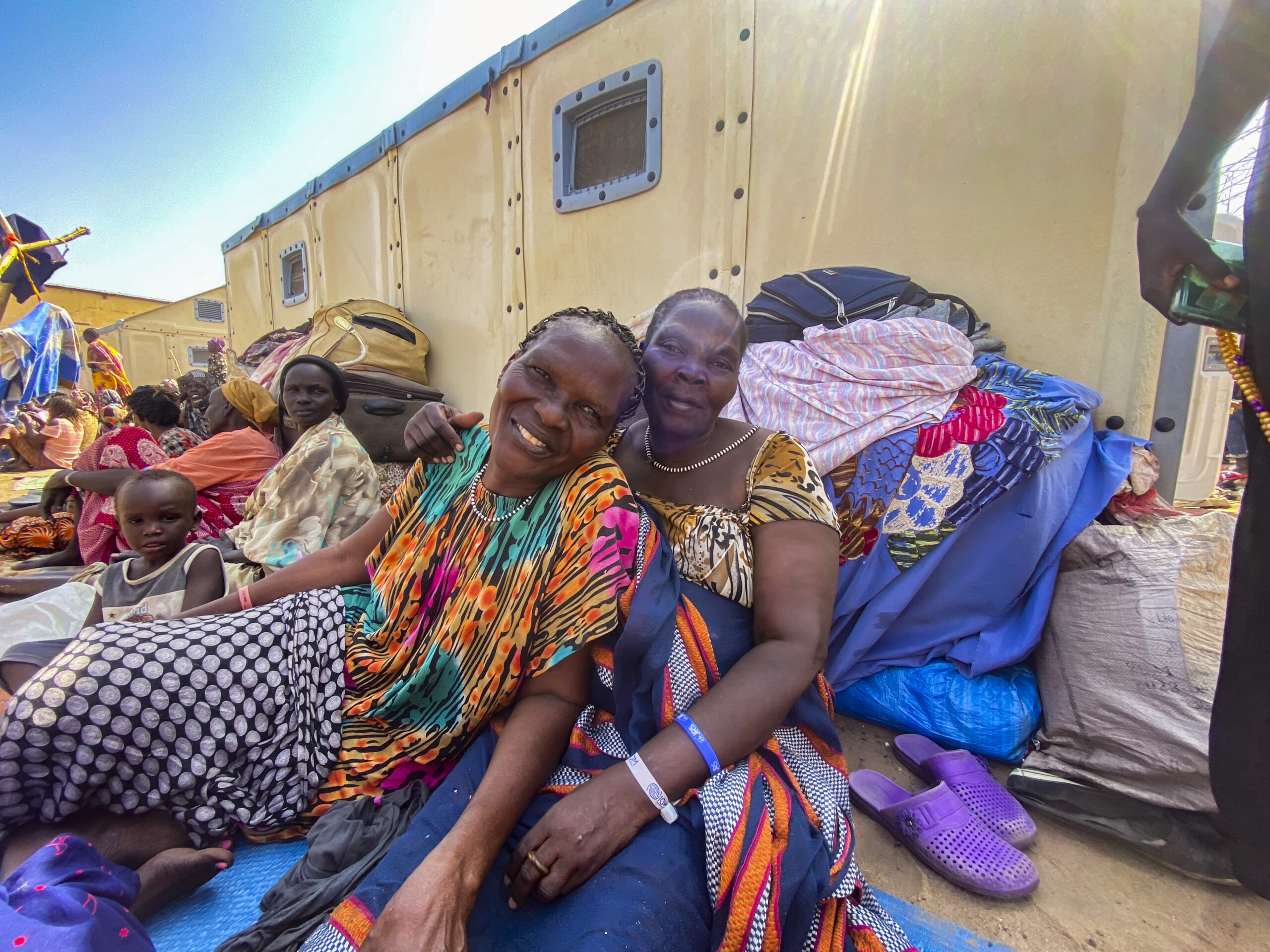
Catherine (40) and Santuki (49) are South Sudanese and had been living in Sudan since they fled South Sudan back in 2016 when violence and ethnic conflict had gripped the country. Catherine, a childcare worker, came with two of her youngest grandchildren. She worries as the whereabouts of her eldest grandchild is unknown. They where not in Khartoum when the war started and like many civilians in the capital – when the bombing started, families had to flee, often taking nothing with them.
Catherine and Santuki left Khartoum when the war started. They saw lots of dead people, both in Khartoum and along the roads as they travelled to the border. When their neighbor’s home was bombed, it was in that moment, that both women made their escape travelling a two-day journey by bus to Renk.
At the Renk Transit site, the women, like many other refugees, do not feel safe. There are no security procedures and there is not enough food nor water for all.
Santuki: “I can’t sleep at night. We are here alone; I fear what can happen”.
They left empty handed “We ran away with what we had on us.”
Santuki “I wish to get a job and be able to provide for my family wherever we are … I don’t want to go back to Sudan again. I don’t feel safe anymore”
Catherine: “Me, I would like to go back to Sudan if peace comes back. I stayed there for 35 years, Khartoum became my home – I loved my job”
Working to support our peers at the Jesuit Refugee Service (JRS) in South Sudan – the teams north at the border are accompanying refugees through a number of actions, from distribution of basic necessities and psychosocial support to creating safe spaces for children and safe transport for resettlement and the referral of people in need of medical care and mental health services.
You can support this vital humanitarian work & help us accompany those in need.


